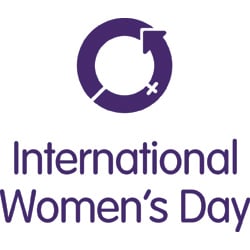We’re calling on you to #PledgeForParity and BCSWomen to tweet your pledge with @bcswomen
6 March 2016
 Everyone – men and women – can pledge to take a concrete step to help achieve gender parity more quickly, whether to help women and girls achieve their ambitions, call for gender-balanced leadership, respect and value difference, develop more inclusive and flexible cultures or root out workplace bias. Each of us can be a leader within our own spheres of influence and commit to take pragmatic action to help include and advance women. Share amongst your friends, social networks and communities and encourage them to make a pledge as well. Together, we can accelerate the clock.
Everyone – men and women – can pledge to take a concrete step to help achieve gender parity more quickly, whether to help women and girls achieve their ambitions, call for gender-balanced leadership, respect and value difference, develop more inclusive and flexible cultures or root out workplace bias. Each of us can be a leader within our own spheres of influence and commit to take pragmatic action to help include and advance women. Share amongst your friends, social networks and communities and encourage them to make a pledge as well. Together, we can accelerate the clock.
BCSWomen tweet your pledge with @bcswomen and they’ll appear on our Twitter feed. We hope to see you there!
Why is gender parity important?
Gender parity is linked to economic prosperity. It’s an economic imperative. Women’s advancement and leadership are central to business performance and economic prosperity. Profitability, ROI and innovation all increase when women are counted among senior leadership.
Numerous global studies on the impact of women in leadership reveal the following findings:
- Women are the largest emerging market in the world
- More equality > higher GDP
- More equality > more productivity
- Better gender balance on boards > better share price and financial performance
- More gender-balanced leadership > better all-around performance
- More women political leaders > more prosperity
What makes a difference?
The World Economic Forum estimates at current rates gender parity will not be achieved until 2133. We wouldn’t wait 117 years to implement any other business imperative offering so much, so why are we waiting for this one? The report, Women. Fast Forward: The time for gender parity is now, offers some ideas on how to accelerate the 117-year projection. It features results from a survey of men and women leaders in 400 companies around the world to identify the biggest barriers and accelerators to women’s career advancement. Key findings include:
- Men and women alike agree that more female leadership leads to stronger companies
- 64% of high-performing companies reported that men and women have equal influence on strategy in their organizations, compared with only 43% of the lower-performing companies
- Men seem to be aware of the unconscious bias in the workplace that holds women back, which means we now can spend more time identifying and eradicating it
What accelerates women’s advancement?
There are three accelerators, working independently and together, that can change the trajectory of women’s advancement:
- Illuminate the path to leadership by making career opportunities more visible to women
- Speed up culture change with progressive corporate policy, such as paternity leave and flexible working
- Build supportive environments and work to eliminate conscious and unconscious bias













